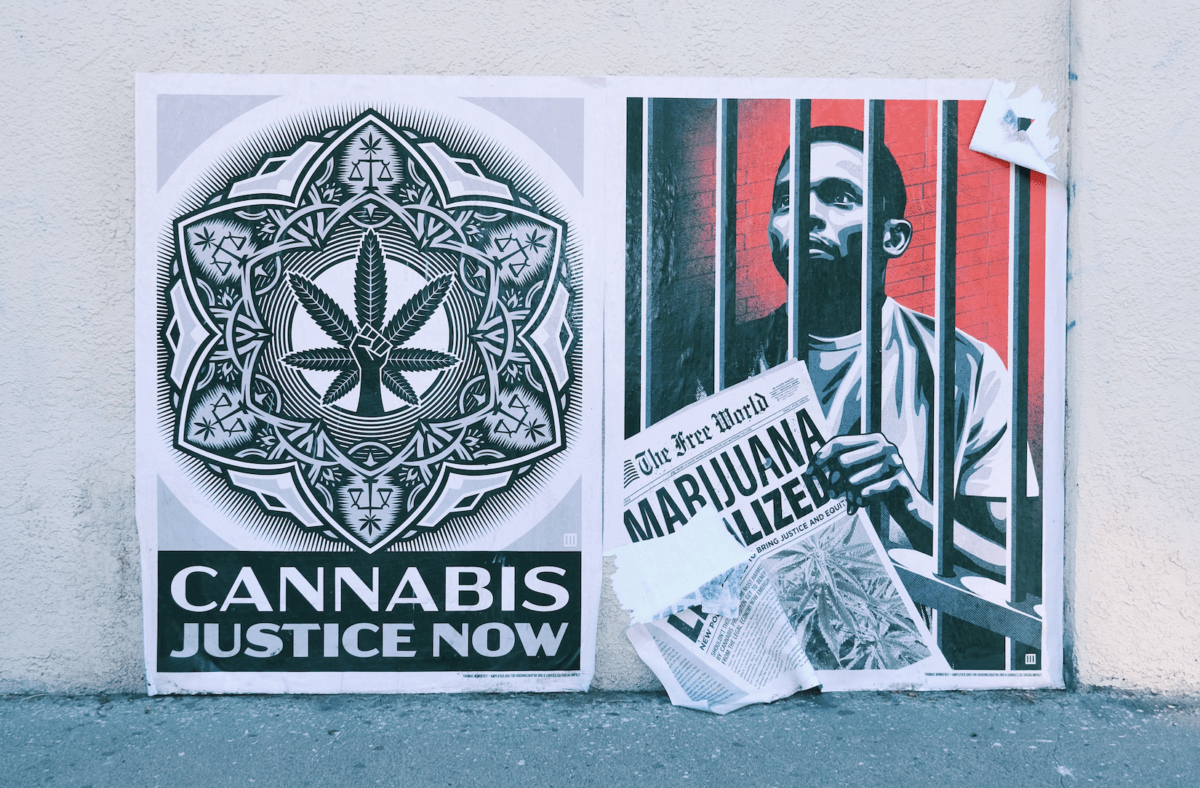
Cannabis Justice Now | Source: caliterpenes
We all know that cannabis has been a hot topic for years, and while some states have legalized it for both medicinal and recreational use, there are still some major racial disparities in both cannabis legalization and incarceration rates.
It’s time to address these issues and bring some much-needed social justice to the cannabis industry. So grab your favorite strain, settle in, and let’s take a deep dive into why we need to address the racial disparities in cannabis legalization and incarceration rates.
The Racial Disparities in Cannabis Legalization and Incarceration Rates
Listen up, folks, because these statistics are going to blow your mind like a fat hit from a bong.
Did you know that even though cannabis use is similar across all races, people of color are nearly four times more likely to be arrested for cannabis-related offenses than their white counterparts?
Yeah, you read that right. Four. Times. More. And when it comes to actually owning a cannabis business, it’s a whole different story. In states where cannabis is legal, only about 4.3% of cannabis dispensaries are owned by people of colour, while 81% are owned by white people. Talk about a buzzkill for diversity and inclusion. These statistics highlight the urgent need to address the racial disparities in cannabis legalization and to work towards creating a fair and equitable cannabis industry for all.
The criminal justice system has not been kind to cannabis users, especially those of color. In fact, people of colour are nearly four times more likely to be arrested for cannabis-related offenses than white people, even though usage rates are similar across races. And once they’re arrested, the situation doesn’t get any better. People of colour are also more likely to face harsher sentences and longer prison terms for cannabis-related crimes. It’s like the criminal justice system took a hit from the bong and forgot that equal treatment under the law is kind of a big deal. So, let’s take a toke of reality and acknowledge the need for change. It’s time to address the racial disparities in cannabis-related arrests and incarceration rates and work towards a more just and equitable society.

Racial Disparities | Source: The Bluntness
So, what’s the deal with the racial disparities in cannabis legalization and incarceration rates? Well, there are a few factors at play here, folks. For starters, there’s the issue of implicit bias. Law enforcement officers, judges, and other decision-makers may hold subconscious biases that lead them to view people of color as more threatening or dangerous th an white people, leading to higher rates of arrest and harsher sentences for cannabis-related offenses.
Then, there’s the war on drugs. This misguided campaign has disproportionately targeted communities of color, leading to higher rates of cannabis-related arrests and incarceration for people of color. And let’s not forget about systemic inequality, which has left people of color with fewer resources and opportunities, making them more vulnerable to the criminal justice system’s harsh treatment.
It’s a complex issue with no easy solutions. But it’s high time we start addressing these factors and working towards a more just and equitable society for all.
The Impact of Cannabis Criminalization on Communities of Color
 Cannabis Criminalization on Communities of Color | Source: ACLU
Cannabis Criminalization on Communities of Color | Source: ACLU
The criminalization of cannabis has had a seriously negative impact on communities of color. Not only are people of color more likely to be arrested and incarcerated for cannabis-related offenses, but they also face a host of other negative consequences.
For one thing, cannabis criminalization has created a culture of fear and mistrust between law enforcement and communities of color. This can lead to a breakdown in community relations and make it harder for police to effectively do their jobs. Let’s not forget about the economic impact, cannabis criminalization can prevent people of color from accessing jobs, housing, and other opportunities, perpetuating cycles of poverty and inequality.
Perhaps the most insidious effect of cannabis criminalization is the way it can perpetuate harmful stereotypes about people of color. By associating cannabis use with criminality, the criminal justice system reinforces harmful stereotypes and biases that can have long-lasting consequences. It’s time to put an end to these harmful effects and work towards creating a more just and equitable society for all. Let’s legalize cannabis and work towards dismantling the harmful systems that have perpetuated inequality for far too long.
The Role of Social Justice in Cannabis Legalization
Weed and social justice, together at last! While cannabis legalization may seem like a simple matter of personal choice, it’s actually a complex issue with deep implications for social justice.
For one thing, cannabis legalization has the potential to create new opportunities for people of color in the cannabis industry. By prioritizing diversity and inclusion in the licensing and regulation of cannabis businesses, we can work towards creating a more equitable and just cannabis industry.
Social justice in cannabis legalization goes beyond just economic opportunities. It also means addressing the harms that have been done to communities of color through the criminalization of cannabis. This could involve expunging cannabis-related convictions, reinvesting cannabis tax revenue into communities that have been disproportionately impacted by the war on drugs, and more.
Let’s not forget about the importance of education and awareness. By educating people about the history of cannabis criminalization and its impact on communities of color, we can work towards building a more informed and compassionate society.
In short, social justice is a crucial component of cannabis legalization. By working towards a more equitable and just cannabis industry, we can create a better future for all.
Key Takeaways!
The issue of cannabis and social justice is a complex one, but one that we simply can’t afford to ignore. From the racial disparities in cannabis legalization and incarceration rates to the negative impact of cannabis criminalization on communities of color, there’s a lot at stake here. The good news is that we can make a difference.
So, what can we do to address these issues and work towards a more just and equitable society? Here are a few ideas:
● Advocate for cannabis legalization efforts that prioritize social justice and equity
● Support cannabis businesses owned by people of color and work towards creating a more diverse and inclusive cannabis industry
● Educate ourselves and others about the history of cannabis criminalization and its impact on communities of color
● Call for expungement of cannabis-related convictions and reinvestment of cannabis tax revenue into communities that have been disproportionately impacted by the war on drugs
By taking these actions and more, we can work towards a future where cannabis is legal and accessible to all, regardless of race or socioeconomic status. So, let’s grab our bongs, our rolling papers, or whatever we prefer, and let’s get to work creating a better future for all. Don’t forget to come back to The Happy Campers for more cannabis-related insights, news, and so much more! For all of your latest cannabis news, follow The Happy Campers on Instagram and Twitter.



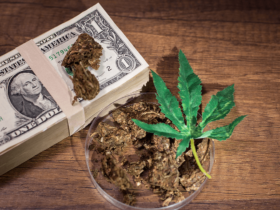

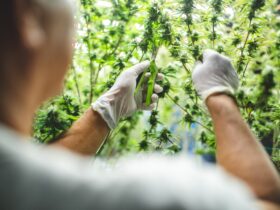
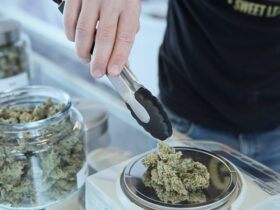


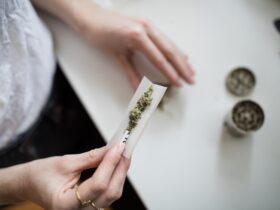
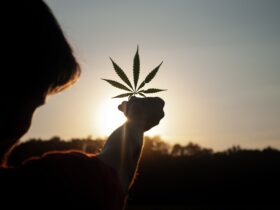

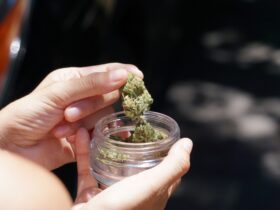

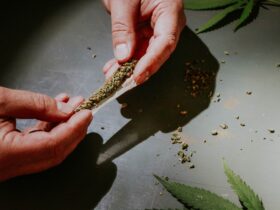

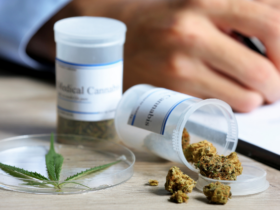

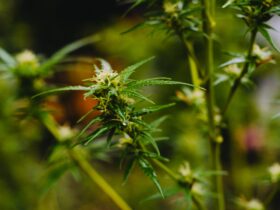



Leave a Reply